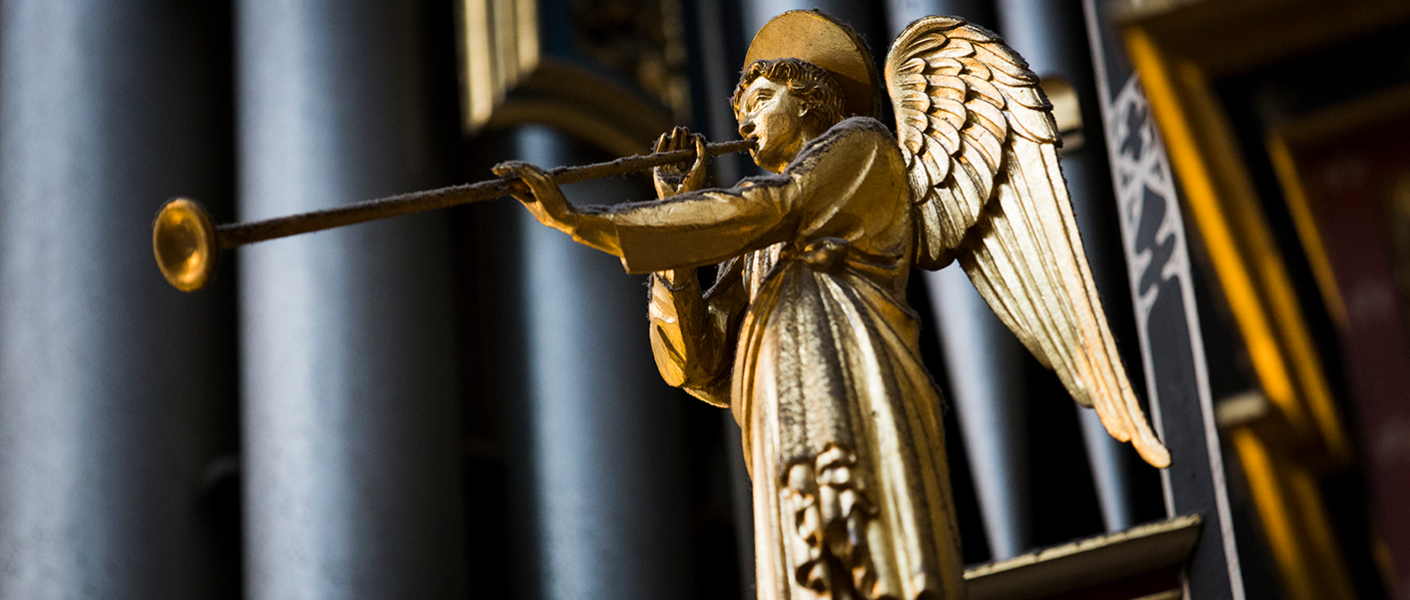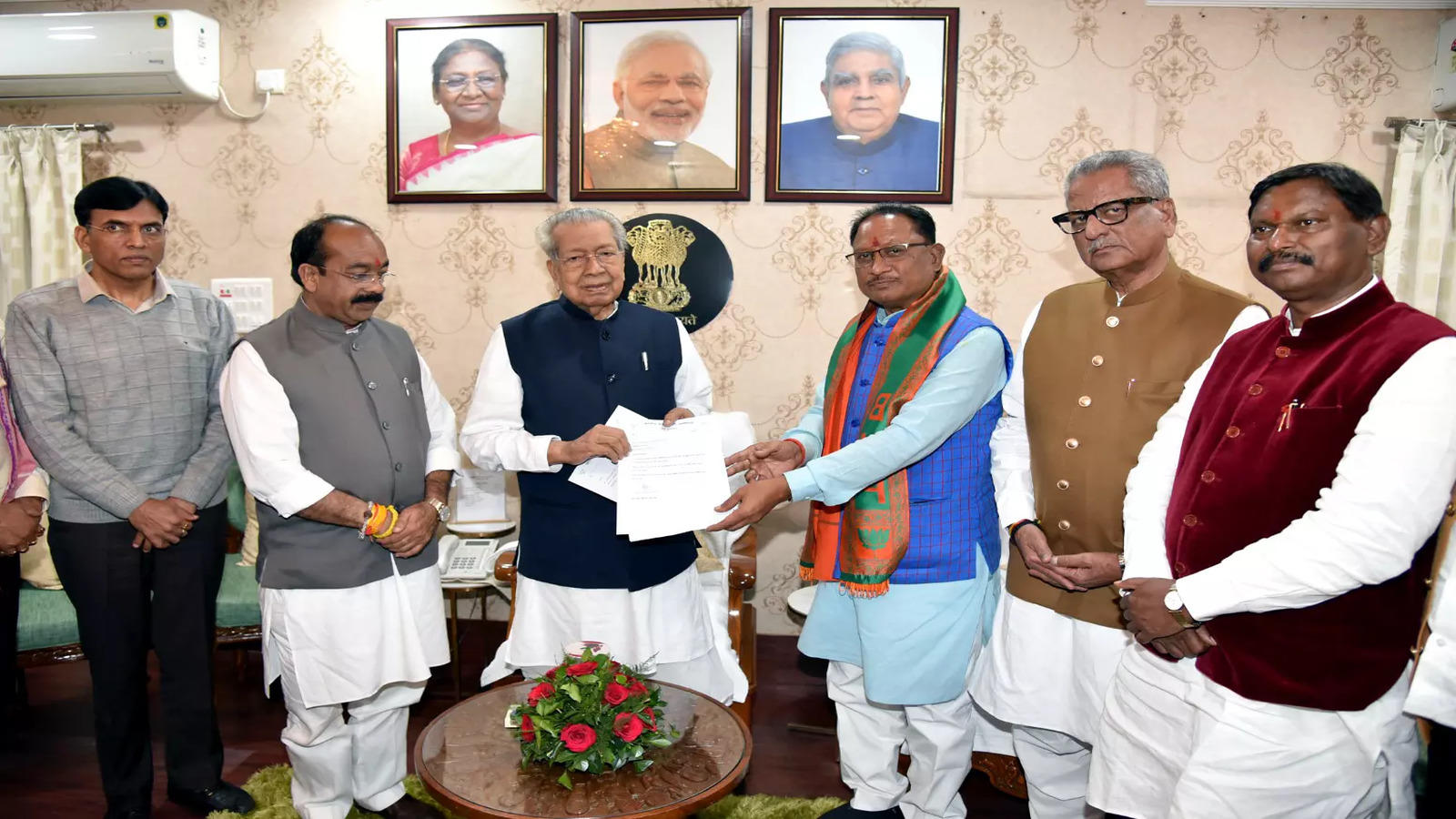
New Music Commissions for the Coronation Service at Westminster Abbey
Buckingham Palace is pleased to announce further details of the twelve new compositions that have been written for the Coronation of Their Majesties The King and The Queen Consort at Westminster Abbey on Saturday 6th May 2023.
A life-long music enthusiast and champion of the arts, His Majesty has overseen, influenced and been personally involved in the commissioning process and the detail of the music programme, which will showcase and celebrate musical talent from across the United Kingdom and further afield.
The musical commissions offer contemporary interpretations of centuries of musical tradition, bringing together world-class composers, who are some of the most esteemed living artists from across the Classical, Sacred, Film, Television and Musical Theatre fields. They have taken varied approaches to their compositions – whether for orchestra, solo voice or choir – resulting in a diverse and accessible musical programme.
Six of the new commissions have been composed for orchestra and will be performed before the Service, prior to Their Majesties’ arrival at the Abbey, complemented by a programme of mainly British music spanning 350 years.
The first Pre-Service commission will be a short overture composed by Judith Weir, Master of The King’s Music, ‘Brighter Visions Shine Afar’, which will be the first performance by the Coronation Orchestra. Speaking about the significance of the composition, Weir said: “The opening passage highlights the horns, an instrument historically associated in music and art with nobility. The title borrowed from the Christmas hymn ‘Angels from the Realms of Glory’ and the optimistic rising scales of the music suggest renewal and hope for the future.” A
t His Majesty’s request, performing the orchestral commissions is the Coronation Orchestra, whose membership comprises some of the world’s greatest musicians drawn from eight leading orchestras of The former Prince of Wales’ Patronages, from across the UK and Canada: the Philharmonia Orchestra, Royal Philharmonic Orchestra, BBC National Orchestra of Wales, Regina Symphony Orchestra (Saskatchewan, Canada), English Chamber Orchestra, Scottish Chamber Orchestra, Royal Opera House Orchestra and Welsh National Opera Orchestra.
The Coronation Orchestra is conducted by Sir Antonio Pappano, Music Director for the Royal Opera House and is led by Vasko Vassilev, Principal Guest Concert Master, Royal Opera House Orchestra, by arrangement with Trittico.
On his appointment as Leader of the Orchestra, Vasko Vassilev said: “I am humbled to have the honour of leading the Coronation Orchestra. We are a diverse group of musicians drawn from different orchestras privileged to enjoy the Patronage of The former Prince of Wales. As a naturalised British citizen I am especially proud to participate in making history and music for this Kingdom, United in diversity.” T
he Coronation Orchestra will be joined by the Royal Harpist, Alis Huws, for Sir Karl Jenkins’ ‘Tros y Garreg (Crossing the Stone)’. Reflecting The King’s abiding affection for and support of Welsh culture, the piece is a new arrangement of Jenkins’ beloved and emotional setting of a Welsh folk song, a luxuriant combination of harp and strings, commissioned by The then Prince of Wales over two decades ago. As The Prince of Wales, The King revived the traditional role of the Royal Harpist in 2000.
Classical and film composer Sarah Class was commissioned by The former Prince of Wales in 2021 to compose the anthem for His Majesty’s Terra Carta environmental initiative. For the Coronation, Class’s ‘Sacred Fire’, which will be performed by acclaimed South African soprano Pretty Yende, conjures imagery from the Bible with its powerful lyrics. Through music, the composition evokes a bridge between the angelic and human realms.
Sarah Class said: “It is a vision of the freedom and protection of all beings, and of the abundance and beauty of our natural world. Above all, the song is a celebration of love, faith and unity, both lyrics and music reflecting the sacred flame of the soul, ever present within all beings and all things.”
Based on one of His Majesty’s favourite hymns, ‘Be Thou my Vision – Triptych for Orchestra’ is a commission from a trio of composers, Nigel Hess, Roderick Williams and Shirley J Thompson, who have each created contemporary musical responses to the Irish hymn and skilfully woven them together into a single work.
Nigel Hess begins the piece with an opening horn call inspired by the acoustics of Westminster Abbey which introduces a stirring rendition for the full orchestra. This gently subsides into a slow rhapsody by Roderick Williams based on the iconic shapes of the Slane melody of the hymn, concealing a musical cryptogram of His Majesty’s name. A sparkling fanfare launches the final section, by Shirley J Thompson, with undulating triplets supporting variations of the melody that are intricately woven throughout, leading to a triumphant and celebratory ending.
Earlier this year, His Majesty paid tribute to the diversity of the Commonwealth, and Iain Farrington’s organ commission, ‘Voices of the World’, is a celebratory, joyful musical offering which combines traditional tunes from across the family of nations. The music is “all mixed together in a joyful, jazzy and dance-like character”. Farrington hopes “it will get people’s toes tapping!”
Following the footsteps of tradition, ‘King Charles III Coronation March’ has been written by film composer Patrick Doyle. Composed to celebrate the life of His Majesty, the March will commence with a bold, heraldic opening, which is ceremonial and full of pageantry. The following section moves forward at pace, reflecting the passing of time, and carrying a strong Celtic influence.
The third part of the March is joyous, before a romantic and reflective sequence which will build to a triumphant finale. Speaking about the March, Patrick Doyle said: “The composition can be described as an Overture March in that it tells a story, and at times reflects aspects of His Majesty’s own character. Overall, the piece is jubilant and uplifting. It is written to embrace the excitement and celebration of the historic day.”
The five new commissions included in the main Service will be directed by Andrew Nethsingha, Organist and Master of the Choristers of Westminster Abbey, and will feature the expanded choral forces of the Choir of Westminster Abbey and The Choir of His Majesty’s Chapel Royal, St James’s Palace, girl choristers from Truro Cathedral and Methodist College, Belfast, joined by singers from the Monteverdi Choir.
A series of fanfares marking ceremonial moments in the Service has been specially written for the occasion by Christopher Robinson, and will be performed by the Fanfare Trumpeters of the Royal Air Force, conducted by Wing Commander Piers Morrell.
Paul Mealor’s ‘Coronation Kyrie’ marks the first Welsh language performance at a Coronation, to be sung by bass-baritone Sir Bryn Terfel and the Choir of Westminster Abbey. On the inspiration for his composition, Mealor said: “It is a meditative, introspective piece based on a blend between Gregorian chant and ‘Cerdd Dant’ (Welsh Penillion singing – an important part of eisteddfodau). I was inspired by the great Welsh tunes– Aberystwyth, Cwm Rhondda, Ar Lan Y Môr – and the composition is coloured by the harmonies of these songs. It is a cry from the deep soul of the hills and valleys of Wales for hope, peace, love and friendship.”
A two-part composition, ‘Alleluia (O Clap your Hands)’ and ‘Alleluia (O Sing Praises)’ has been commissioned from award-winning TV and film composer Debbie Wiseman. ‘O Clap Your Hands’ will be sung by the expanded Westminster Abbey Choir, and ‘O Sing Praises’ will be performed by The Ascension Choir, the first gospel choir to sing at a Coronation. Speaking about her compositions, Wiseman said: “The Coronation is a solemn religious ceremony and the natural inclination is to go for a reverential hymn-like approach, but I was keen to make this piece, above all, joyful and celebratory of the new King and the new era. Part of the liturgical text says “O sing unto God with the voice of melody” and when my melodies are sung by the wonderful voices of the world-renowned Choir of Westminster Abbey, I can’t absolutely confirm they’ll reach heaven but they’ll certainly raise the roof.”
On writing for The Ascension Choir, Wiseman said: “This supremely professional, talented and experienced choir (comprising 4 male singers and 4 female singers) – the first gospel choir, of course, to perform at a Coronation – will warm everyone’s hearts.”
Discussing his ‘Make a Joyful Noise’ a Coronation Anthem, Andrew Lloyd Webber, said “I had the good fortune to discuss the text with His Majesty The King. We discussed the writings of Solomon and I suggested adapting Psalm 98 with its message of “Make A Joyful Noise unto the Lord, the King”. It seems so appropriate to the moment in the Coronation service. I played, and tried to sing, my early score for The King a few weeks ago. I have composed a short opening and closing fanfare, which will be played by the Fanfare Trumpeters of the Royal Air Force. The anthem is scored for the wonderful Choir of Westminster Abbey and the Coronation Orchestra.”
Describing her ‘Coronation Sanctus’ Roxanna Panufnik said: “The piece starts a little mysteriously with an atmosphere of awe and wonderment as Isaiah describes his vision of heaven. The music quickly builds and finishes ecstatically, with organ fanfares and flamboyantly colourful harmonies.”
Finally, His Majesty commissioned Tarik O’Regan, whose music he remembered having heard at Lincoln Cathedral in 2006. Such was the impact of the work that The King commissioned O’Regan to write the ‘Agnus Dei’ for a reflective moment during the Coronation Service. Tarik O’Regan said: “I wanted to explore influences from my own varied heritages within the context of the Agnus Dei in the British choral tradition: a unison melody is slowly fragmented to create myriad timbres, much as one might hear in some Arab or Irish traditional music. This melodic shifting is also reminiscent of ‘phase music’, strongly connected with San Francisco, where I wrote this work. Finally, there is an alternating verse anthem structure: a nod to Orlando Gibbons, who became Organist of Westminster Abbey exactly 400 years ago.”




Leave a Reply